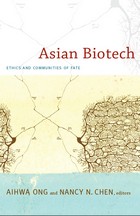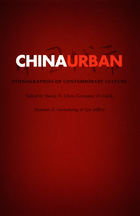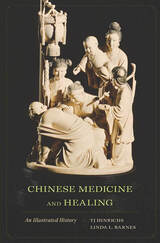
Contributors
Vincanne Adams
Nancy N. Chen
Stefan Ecks
Kathleen Erwin
Phuoc V. Le
Jennifer Liu
Aihwa Ong
Margaret Sleeboom-Faulkner
Kaushik Sunder Rajan
Wen-Ching Sung
Charis Thompson
Ara Wilson

Through close attention to everyday lives and narratives and with a particular focus on gender, market, and spatial practices, this collection stresses that, in the case of China, rural life and the impact of socialism must be considered in order to fully comprehend the urban. Individual essays note the impact of legal barriers to geographic mobility in China, the proliferation of different urban centers, the different distribution of resources among various regions, and the pervasive appeal of the urban, both in terms of living in cities and in acquiring products and conventions signaling urbanity. Others focus on the direct sales industry, the Chinese rock music market, the discursive production of femininity and motherhood in urban hospitals, and the transformations in access to healthcare.
China Urban will interest anthropologists, sociologists, political scientists, and those studying urban planning, China, East Asia, and globalization.
Contributors. Tad Ballew, Susan Brownell, Nancy N. Chen, Constance D. Clark, Robert Efird, Suzanne Z. Gottschang, Ellen Hertz, Lisa Hoffman, Sandra Hyde, Lyn Jeffery, Lida Junghans, Louisa Schein, Li Zhang

Chinese Medicine and Healing is a comprehensive introduction to a rich array of Chinese healing practices as they have developed through time and across cultures. Contributions from fifty-eight leading international scholars in such fields as Chinese archaeology, history, anthropology, religion, and medicine make this a collaborative work of uncommon intellectual synergy, and a vital new resource for anyone working in East Asian or world history, in medical history and anthropology, and in biomedicine and complementary healing arts.
This illustrated history explores the emergence and development of a wide range of health interventions, including propitiation of disease-inflicting spirits, divination, vitality-cultivating meditative disciplines, herbal remedies, pulse diagnosis, and acupuncture. The authors investigate processes that contribute to historical change, such as competition between different types of practitioner—shamans, Daoist priests, Buddhist monks, scholar physicians, and even government officials. Accompanying vignettes and illustrations bring to life such diverse arenas of health care as childbirth in the Tang period, Yuan state-established medical schools, fertility control in the Qing, and the search for sexual potency in the People’s Republic.
The two final chapters illustrate Chinese healing modalities across the globe and address the challenges they have posed as alternatives to biomedical standards of training and licensure. The discussion includes such far-reaching examples as Chinese treatments for diphtheria in colonial Australia and malaria in Africa, the invention of ear acupuncture by the French and its worldwide dissemination, and the varying applications of acupuncture from Germany to Argentina and Iraq.
READERS
Browse our collection.
PUBLISHERS
See BiblioVault's publisher services.
STUDENT SERVICES
Files for college accessibility offices.
UChicago Accessibility Resources
home | accessibility | search | about | contact us
BiblioVault ® 2001 - 2024
The University of Chicago Press









